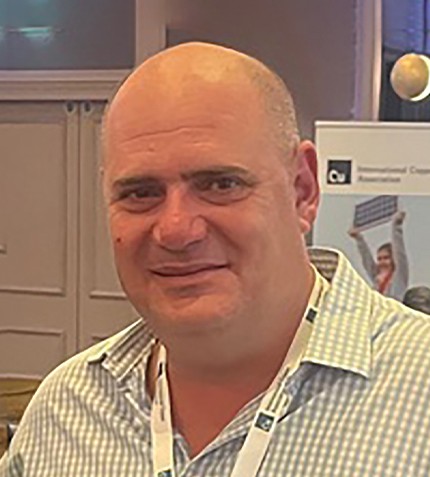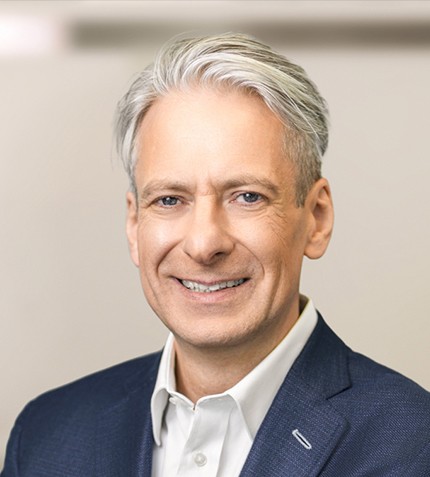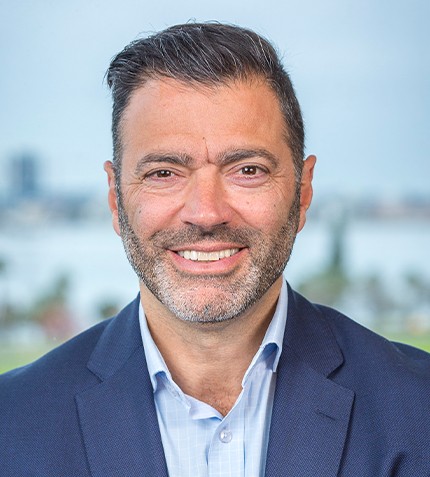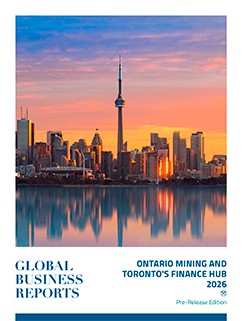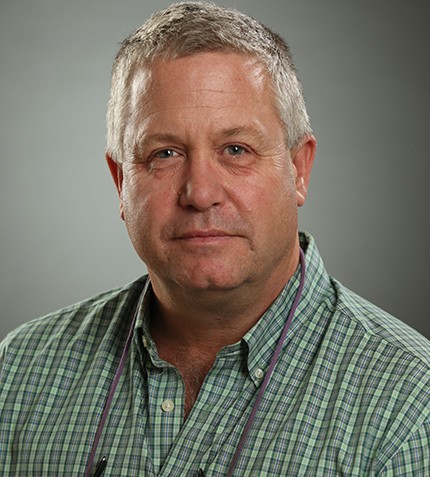
"Geoscientists are often unable to interpret and utilize the details of the data being generated and consequently industry has become data rich and knowledge poor. MERC and HES are combating this trend by fostering a deeper understanding of ore systems to produce geoscientists who are better equipped at interpreting complex multi-parameter datasets and can navigate within a data-rich work environment."
Dr. Ross Sherlock
PROFESSOR, DIRECTOR OF MERC AND METAL EARTH, CHAIR IN EXPLORATION TARGETING, LAURENTIAN UNIVERSITY
What is the focus of the Mineral Exploration Research Centre (MERC)?
Our goal is to advance the fundamental science that will discover the next generation of orebodies. Our belief is that the discovery of orebodies has the biggest multiplier effect in the creation of new wealth for society.
MERC works with industry and governments on collaborative research projects across Canada and the globe. These projects support the development of new exploration methods and technologies while training highly qualified personnel for careers in the minerals industry, academia and government. MERC facilitates and manages research projects, typically field-based and exploration related. Our largest current project is “Metal Earth,” a C$104 million, 7-year, applied R&D effort supported in large part by the Canada First Research Excellence Fund (CFREF). MERC also offers short courses and modular courses targeted at industry professionals which are run in partnership with industry events such as the PDAC and Roundup.
MERC is a part of the Harquail School of Earth Sciences (HES) here at Laurentian University in Sudbury, Ontario. HES is a comprehensive geology department offering BSc, MSc and PhD programs including options for a thesis based MSc in geology or applied MSc in mineral exploration. The applied MSc program options are one year (full time) or two-year (part time), both of which are designed to allow professionals to upgrade their skills. The PhD program is in mineral deposits and Precambrian geology.
How is innovation impacting geological exploration?
Innovation in exploration has introduced new and complex datasets, faster and more effective, with an increased degree of resolution. However, geoscientists are often unable to interpret and utilize the details of the data being generated and consequently industry has become data rich and knowledge poor. MERC and HES are combating this trend by fostering a deeper understanding of ore systems to produce geoscientists who are better equipped at interpreting complex multi-parameter datasets and can navigate within a data-rich work environment.
Over the last decade, industry has shifted its focus to brownfield exploration because of unsatisfactory returns from its greenfield exploration efforts. However, with sustained exploration, brownfield environments will inevitably deliver declining results. MERC’s Metal Earth project is focused on reducing the risk in greenfield exploration by helping to identify higher probability targets in under-explored areas.
How will the Metal Earth project impact geological exploration?
Metal Earth is a large multidisciplinary research project, led by MERC, focused on understanding the Earth’s early evolution and processes that led to differential metal endowment in Precambrian rocks. Metal deposits occur in clusters, with some areas of the earth’s crust remarkably rich in metal deposits, and other areas of similar geology with relatively few deposits. By understanding the processes that result in these differences and making the process mapable and predictable, industry will possess a significantly more effective exploration tool to focus its greenfield exploration efforts. This tool will be exportable to other jurisdictions of similar geology such as the Birimian belt of West Africa and the Guiana shield of South America.
Can you elaborate on the collaboration between MERC and GoldSpot Discoveries?
MERC partnered with GoldSpot Discoveries to utilize their expertise in artificial intelligence (AI) applied to geoscience data. One of the mandates of Metal Earth is to develop algorithms that analyze the datasets we generate to identify factors to better characterize metal endowment. The combination of a data-rich geological environment, developed with Metal Earth and modern AI techniques, will lead to new tools and methods for area selection in exploration.
How can the mining sector become a more attractive career option for a young talent pool?
Youth often perceives resource development, including oil and gas, as low-tech, manual and environmentally destructive. However, those with direct experience with the industry soon realize the opposite is true. Resource development is one of the most beneficial activities for society that can create a lasting positive legacy. The city we are based in, Sudbury, is a great example of what mining has made possible and what opportunities await a new generation of geoscientists. We are working to help younger generations see this reality. We have partnered with entrepreneurial companies such as Orix Geoscience to show that a career in geoscience can include aspects of the outdoors, technology, creativity, environmental sustainability, and innovation. Cutting edge new tools are being used to solve geoscience problems and discover new resources. Seeing the modern image of geoscience has proven to be inspirational.
What makes the Laurentian University outstanding for students interested in geology?
Laurentian University has made it a strategic commitment to be Canada’s Mining University. Laurentian is one of the few universities sitting in a world class mining hub with a full range of exploration, mining, smelting and refining activities. Besides MERC and the Harquail School of Earth Sciences, Laurentian also has the Goodman School of Mines, the Bharti School of Engineering and the Mirarco Mining Innovation Institute. The Ontario Geological Survey, Geoscience Laboratories and Ministry of Northern Development and Mines are also housed in the same building as MERC and HES. There are ample opportunities for students to gain valuable industry experience throughout their education. Laurentian University is undeniably the best place on Earth to study mining related geology.





